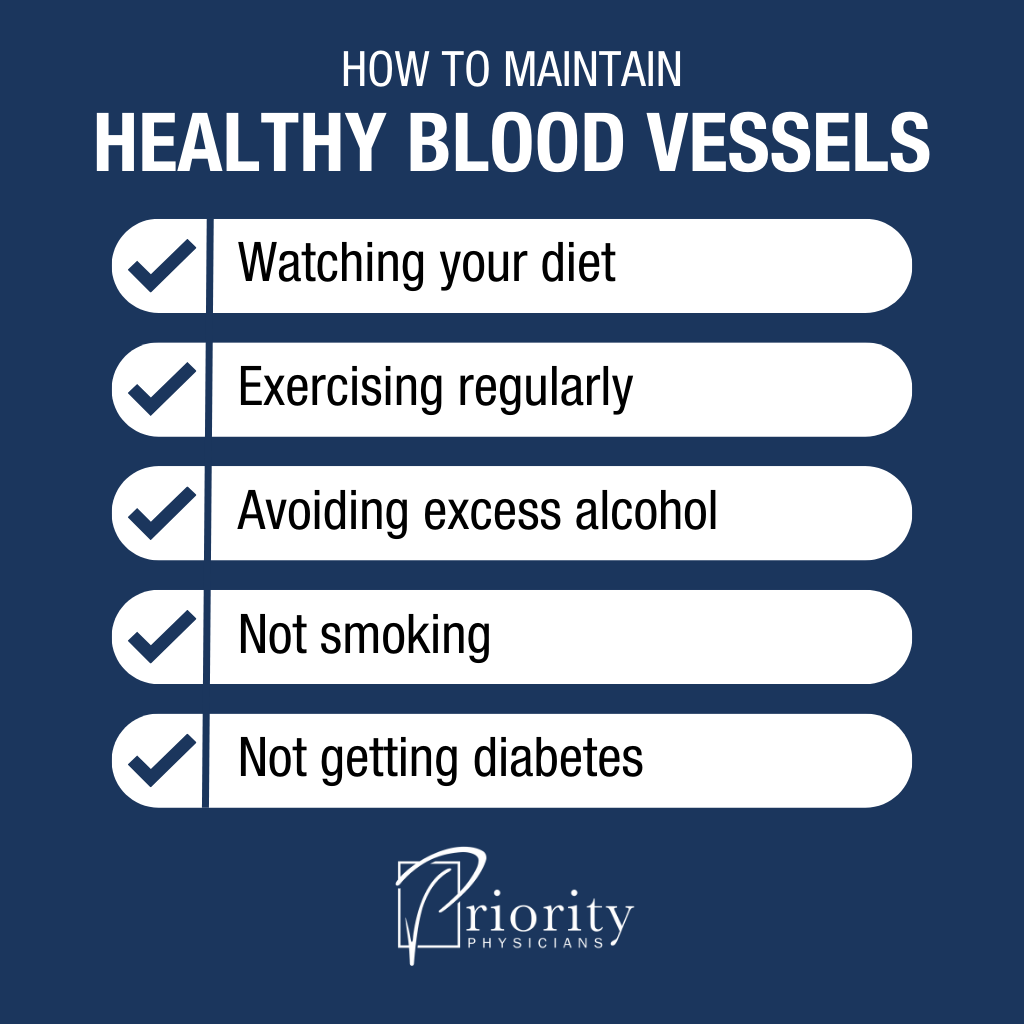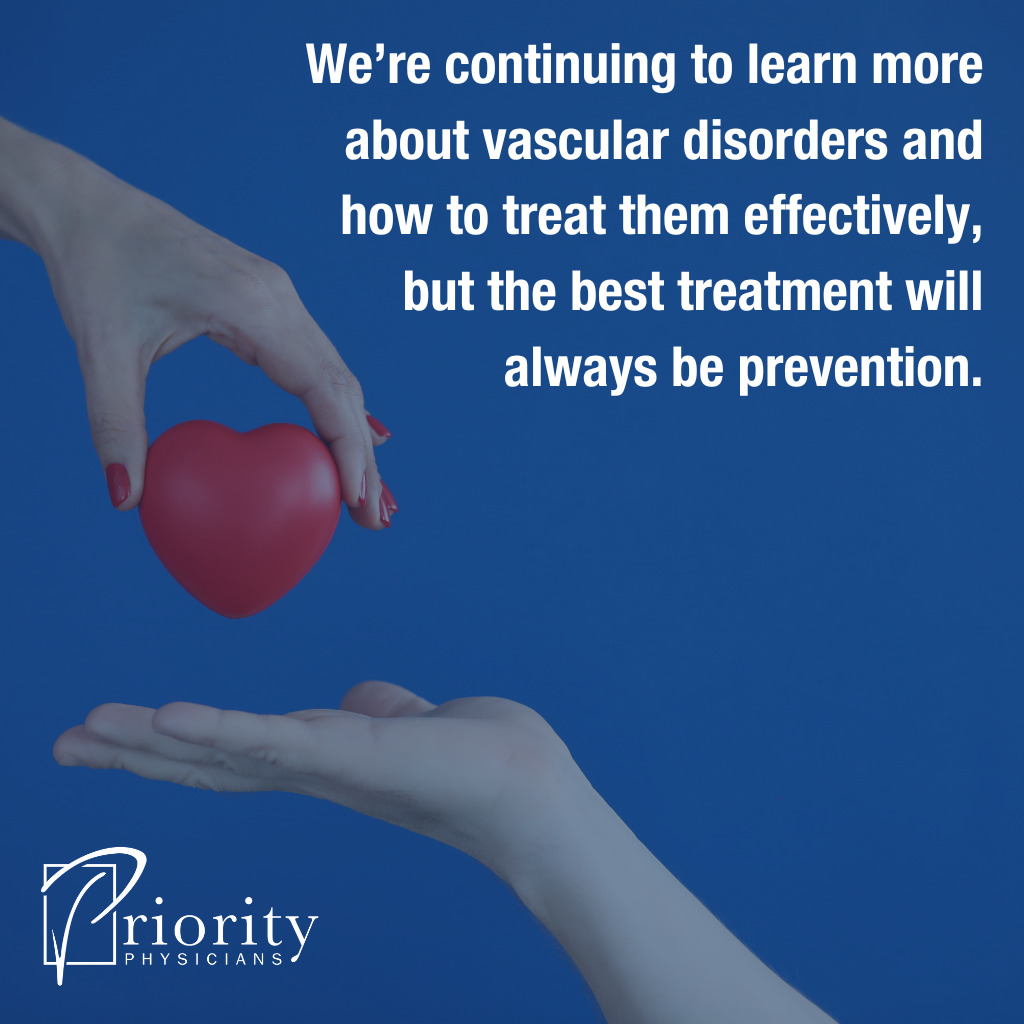Strokes only happen in old people.
Heart attacks always have symptoms.
People who have heart attacks and strokes all have high cholesterol.
Exercise unfailingly prevents heart attacks and strokes.
These are some common phrases I hear when talking with patients. I hate to break it to them, but all these statements are wrong. Strokes can happen in individuals who are young, even as young as in their 30s and 40s, and for half of all fatal heart attacks, the first symptom is sudden death.
The biggest misconception of all is that three of the most common health issues — hypertension, heart disease, and stroke — are completely separate conditions. The truth is that they’re absolutely linked.
But how are hypertension, heart disease, and stroke related, and what can you do to prevent all three? Read on to find out.
How Are Hypertension, Heart Disease, and Stroke Related?
The root connection between hypertension, heart disease, and stroke is that they’re all vascular diseases, meaning they all involve the blood vessels.
- Hypertension happens when the pressure inside your blood vessels gets too high. This is usually because of the blood vessel walls losing their elasticity; instead of expanding and contracting like a garden hose, they start to function more like a stiff lead pipe. As a result, blood pressure becomes extremely elevated with every heart beat.
- Heart disease is caused by the walls of blood vessels becoming inflamed, creating an optimal environment for plaques, or cholesterol molecules, to attach to the vessel walls. Over time, plaques can rupture, break off, and travel to the heart.
- Strokes occur when plaque that accumulated on a blood vessel wall breaks off and travels elsewhere in the body — in this case, the brain — and blocks blood flow. Also known as an embolism, plaque obstructing oxygen to the brain causes brain tissue to die.
Hypertension, heart disease, and strokes are all related to vessel wall physiology. To prevent these conditions, you need to keep your blood vessels healthy.
How to Prevent and Treat Hypertension, Heart Disease, and Strokes
Because hypertension, heart disease, and strokes are related, it’s only logical that they have similar preventive and treatment options. Lifestyle modifications are the simplest way to maintain healthy blood vessels. This probably isn’t your first time hearing about the following:
- Watching your diet
- Exercising regularly
- Avoiding excess alcohol
- Not smoking
- Not getting diabetes
Of course, lifestyle modifications aren’t a foolproof way to maintain blood vessel elasticity. Some risks of developing one or more of these three conditions may be inevitable due to genetics. In fact, you can start developing these conditions extremely early in life; plaque has been detected in two-year-olds.
Outside of lifestyle modifications, there are medications that can lower your risk of these conditions.

Blood Pressure Medications
There are several classes of blood pressure medications. Most have been around for a very long time and have data to show that taking these medications for extended periods leads to a longer life.
This is the outcome we actually care about. To be blunt, I don’t particularly care about the exact value of your blood pressure reading. I care about you living another five years — and I’m sure you do, too.
Data shows the medication hydrochlorothiazide can extend a person’s lifetime if taken when their blood pressure is high. Meanwhile, a different class of drugs known as ACE inhibitors work to relax the blood vessels, which can lower blood pressure and decrease oxygen demand from the heart. They enable the heart tissue to remodel and heal, while being renal-protective to heal your kidneys in a similar way.
Stroke and Heart Disease Medications
Medications for both these conditions have the same goals: to thin blood and lower cholesterol levels.
Take anticoagulants, for example. If a plaque ruptures from the wall of an artery, it often doesn’t occlude (block) the entire blood vessel. What actually cuts off blood flow is when a new clot forms on top of that migrated plaque. Anticoagulants, like Plavix, work to ensure those secondary plaques don’t cause a clot to form that occludes the vessel.
Then there are statins, a class of drugs that block your body from producing a substance it uses to make cholesterol. Drugs of this class help lower cholesterol and also have an anti-inflammatory component. Statins are believed to reduce the likelihood of plaques adhering to vessel walls, making them a great preventative medication. Many medical professionals believe everyone should be on statins for this reason.
How Are Hypertension, Heart Disease, and Stroke Related? Final Thoughts
It’s no secret that the human body is incredibly complex. Thankfully, some of the most common diseases are relatively simple to understand. When you think about how hypertension, heart disease, and stroke are related, consider that your blood vessels interact with every part of your body.
We’re continuing to learn more about vascular disorders and how to treat them effectively, but the best treatment will always be prevention. You’re never too young to start your preventative care journey against these three diseases.


